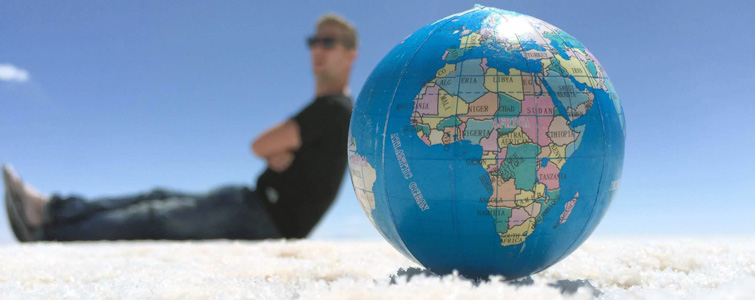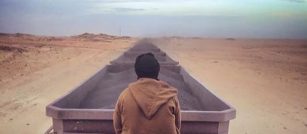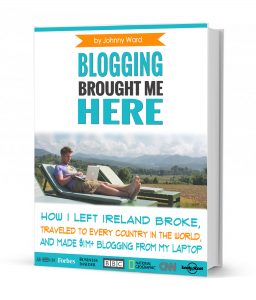Moving to Australia from UK: 10 Things City dwellers should know first!
Are you considering moving to Australia from the UK? If so, you’re probably feeling a mix of excitement and trepidation about your move. Moving to a different continent is a big step, and there are many things to consider before making the jump. To make the transition smoother, you must be aware of the unique challenges you might face when moving to Australia from the UK.
Table of contents
This blog post will share 10 things you should know before moving to Australia from the UK.
1. Transportation
One of the major differences between the transportation systems is the use of a public transport system. In Australia, most people use public transport such as buses, trains, and light rail services to get around. Australia’s public transport systems are considered more affordable and convenient.
Another difference between the two countries is the cost of parking. Australia has much higher parking fees than the UK, so it’s essential to consider this when moving. On-street parking, for example, can cost anywhere from $3 to $7 an hour in Australian cities.
If you’re looking for cheap parking in Australia, there are a few tips to keep in mind.
- Some businesses offer discounted parking for their customers, so check if there are any special deals at nearby shops and restaurants.
- You can also try and locate off-street car parks, which are typically cheaper than on-street parking options.
- Monthly parking is cheaper – when I moved, I used Parkhound to find parking and could search by location and then sort by walking distance to where I wanted to go. This option was much cheaper than standard rates.
Consider your transportation needs before making the move, so you can save time and money when travelling around the country.
2. What do I need to do to move from the UK to Australia?
Moving to Australia from the UK can seem like a daunting prospect. However, there are some key steps you need to take to make the transition as smooth as possible.
- Obtain a Visa – Various types of visas are available, which are suitable for you depending on your circumstances.
- Get a bank account – Open a bank account in Australia and get a local phone number.
- Buy or lease a car – If you plan on buying or leasing a car, you must get insurance for your car and any home contents you may bring.
- Accommodation – If you rent accommodation, you must search for a place to live. Be sure to factor in additional costs such as utility bills and renter’s insurance.
By following these steps and doing your research, you can ensure that moving to Australia from the UK is a stress-free and enjoyable experience.
3. Where should I live?
It depends on your budget. In Sydney and Melbourne, the cost of living can be as high as in London!
However, if you are looking for a more affordable lifestyle with similar amenities to those found in Europe or North America (within a city), look at Adelaide and Perth.
They have lower living costs than Sydney and Melbourne but still offer sound public transport systems with plenty of entertainment options (including cinemas).
4. Their seasons are opposite to ours
The seasons are opposite to the UK. Summer is December to February, and winter is June to August. Melbourne has four seasons: spring (Sept-Nov), summer (Dec-Feb), autumn (Mar-May) and winter (Jun-Aug). The temperature ranges from 12°C in winter to 4°C in summer. There’s no such thing as a cold snap here; Melbourne has never experienced snowfall!
5. The cost of living
Generally, the cost of living in Australia is more expensive than in the UK. The price of groceries, utilities and accommodation are higher in Australia than in the UK. Prices vary depending on where you live and your lifestyle, but you should expect to pay more for essential items like housing, transportation and food.
Housing is one of the biggest differences between the two countries. Home prices in Australia are much higher than in the UK, and rent is also more expensive. When moving to Australia from the UK, it’s essential to factor in these higher costs when budgeting.
6. The insects are enormous
There are a lot of insects in Australia. The biggest ones are the size of your hand; they can fly, sting and bite.
Most of these terrifying creatures live in the bush, but they come into town occasionally — especially when there’s food around. They’re also quite poisonous and venomous, so if you fear spiders, this may not be the right place for you!
7. You can’t drink the tap water
Drinking tap water is not recommended in Australia, as it may contain harmful bacteria or chemicals. However, most local councils provide free filtered and treated drinking water from taps at their public facilities, such as pools and libraries. If you’re unsure whether your local council offers these services, contact them and ask.
8. The culture
When moving to Australia from the UK, culture shock is one of the most significant things to be aware of. Australia is a culturally diverse nation with various customs and traditions. From the Aboriginal Dreamtime stories to the rich immigrant history, there is a lot to discover and appreciate in this vibrant country.
Regarding their national identity, Australians are known for their relaxed attitude towards life and their unique take on humour. The Aussie sense of humour is often very self-deprecating, so be prepared for some good-natured ribbing when you move to Australia!
9. The food
Moving to Australia means you’ll have access to a range of exciting new flavours, from traditional Aussie fare such as Vegemite and barbecued meats to fresh seafood like lobster and prawns. Eating out in Australia is a great way to sample the local cuisine, but if you plan on staying for the long term, you may want to check out the local supermarkets for a wider variety of fresh produce.
10. The Healthcare System
Australia has a high-quality public healthcare system known as Medicare, which covers most medical services and some medications at reduced or no cost. To access it, all you need to do is enrol with Medicare and present your Medicare card when you visit a healthcare provider.
For additional coverage, private health insurance is available. Private health insurance can help cover the costs of services not included under the public system, such as dental, optical and alternative therapies.
Final Thoughts
Hopefully, this guide has given you insight into living in an Australian city. Don’t forget too, it’s strictly home to one of the seven summits too, so go and hike mount kosciuszko, and get closer to that explorers grand slam! Although there are many differences between living here and living at home, the end goal is still the same: to have a good time while making new friends.
Remember, never travel without travel insurance! And never overpay for travel insurance!
I use HeyMondo. You get INSTANT quotes. Super cheap, they actually pay out, AND they cover almost everywhere, where most insurance companies don't (even places like Central African Republic etc!). You can sign-up here. PS You even get 5% off if you use MY LINK! You can even sign up if you're already overseas and traveling, pretty cool.
Also, if you want to start a blog...I CAN HELP YOU!
Also, if you want to start a blog, and start to change your life, I'd love to help you! Email me on johnny@onestep4ward.com. In the meantime, check out my super easy blog post on how to start a travel blog in under 30 minutes, here! And if you just want to get cracking, use BlueHost at a discount, through me.
Also, (if you're like me, and awful with tech-stuff) email me and my team can get a blog up and running for you, designed and everything, for $699 - email johnny@onestep4ward.com to get started.
Do you work remotely? Are you a digital nomad/blogger etc? You need to be insured too.
I use SafetyWing for my digital nomad insurance. It covers me while I live overseas. It's just $10 a week, and it's amazing! No upfront fees, you just pay week by week, and you can sign up just for a week if you want, then switch it off and on whenever. You can read my review here, and you can sign-up here!













 As you know, blogging changed my life. I left Ireland broke, with no plan, with just a one-way ticket to Thailand
and no money. Since then, I started a blog, then a digital media company, I've made
more than $1,500,000 USD, bought 4 properties and visited (almost) every country in the world. And I did it all from my laptop as I
travel the world and live my dream. I talk about how I did it, and how you can do it too, in my COMPLETELY FREE
Ebook, all 20,000
words or so. Just finish the process by putting in your email below and I'll mail it right out to you immediately. No spam ever too, I promise!
As you know, blogging changed my life. I left Ireland broke, with no plan, with just a one-way ticket to Thailand
and no money. Since then, I started a blog, then a digital media company, I've made
more than $1,500,000 USD, bought 4 properties and visited (almost) every country in the world. And I did it all from my laptop as I
travel the world and live my dream. I talk about how I did it, and how you can do it too, in my COMPLETELY FREE
Ebook, all 20,000
words or so. Just finish the process by putting in your email below and I'll mail it right out to you immediately. No spam ever too, I promise!
